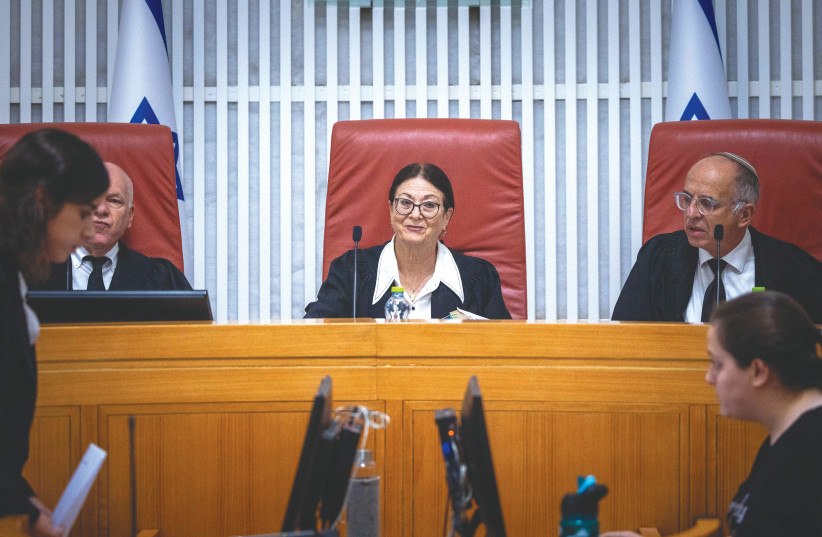Likud MK Nissim Vaturi withdrew his candidacy for one of the Knesset's two slots on Israel's Judicial Selections Committee, leaving seven other candidates from the coalition in the field ahead of Wednesday's vote, which could prove critical in the survival of the ongoing talks over the government's judicial reforms at the President's Residence.
The Judicial Selections Committee is responsible for electing all of Israel's judges. The Knesset gets two spots on the committee. In the past few decades, the coalition traditionally took one spot for itself and granted the other to the opposition. However, some ministers and coalition members called publicly for both spots to go to the coalition. Both opposition parties participating in the talks at the President's Residence, Yesh Atid and National Unity, threatened in recent weeks that if the coalition chooses to occupy both seats, they will walk away from the negotiating table.
The opposition coalesced around the candidacy of Yesh Atid MK Karin Elharrar, and no other candidate exists from the opposition.
However, eight coalition MKs put their names forward ahead of Wednesday's deadline.
Who are the government's candidates for Israel's Judicial Selection Committee?
Wednesday's vote is anonymous, and therefore if two coalition candidates remain by then – there is a fair chance that both will be elected to the committee.

The Likud promised Otzma Yehudit in coalition agreements signed ahead of the government's formation in December that the latter would receive a spot on the committee. This means that a likely candidate to represent the coalition is Otzma Yehudit's candidate, MK Yizhak Kreuzer.
However, at least one Likud MK, Tally Gotliv, pledged not to remove her candidacy prior to the vote, meaning that the coalition could potentially occupy both spots on the committee.
The makeup of the committee is one of the most contentious issues in the government’s judicial reforms. According to current law, the committee includes three High Court of Justice judges, one of whom is the chief justice; two ministers, one of whom is the justice minister; two Knesset members; and two representatives of the Israel Bar Association (IBA). One of the judges, ministers, MKs, and IBA representatives must be a woman.
Justice Minister Yariv Levin and other proponents of the judicial reforms argue that the Bar Association members have an interest in siding with the judges before whom they appear in court. This gives the judges a de facto majority in the committee and the ability to choose whomever they see fit. Levin argued that the elected representatives of the people should be the ones appointing the nation’s judges, and therefore proposed to amend the committee’s makeup such that the coalition has a majority.
The opposition, however, argued that giving the coalition complete power over judicial appointments will turn these appointments into part of the political give-and-take, and thus create a system where judges are chosen due to their political affiliations and not their skill or expertise.
The High Court members of the committee are Chief Justice Esther Hayut, Justice Uzi Fogelman, and Justice Yizhak Amit; the second minister has yet to be chosen; the two Knesset members will be elected on Wednesday; and the IBA is voting for its chairperson and executive committee on June 20, and its representatives on the committee will be known soon after.
Levin is not required by law to convene the committee, nor to appoint judges by a certain deadline. Levin could, therefore, choose not to convene the committee, in the hope that the coalition may still be able to change the committee’s makeup at a later date.
Opposition leader and Yesh Atid chairman MK Yair Lapid demanded last week that the committee therefore convene within two weeks and begin to operate, threatening to leave the talks if this does not happen.
